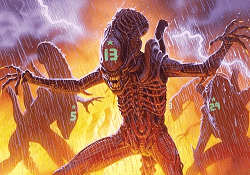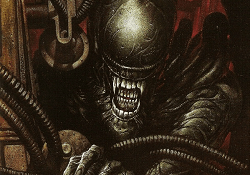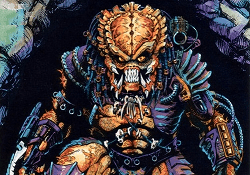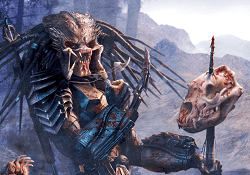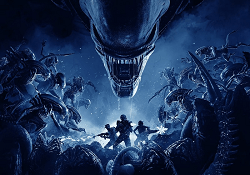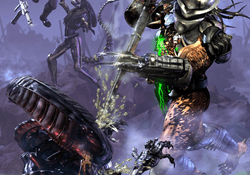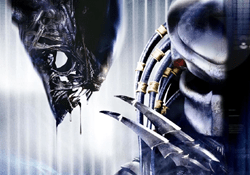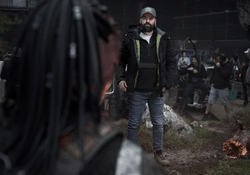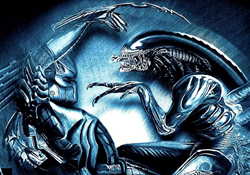Weyland-Yutani: Full History Of The Company
The Weyland-Yutani Corporation, often referred to as "The Company", represents one of the most iconic symbols in science fiction cinema. Originating from the first Alien movie, this multinational conglomerate has become synonymous with the darker aspects of corporate greed and technological overreach. In this article, we explore the long history of Weyland-Yutani, including several corporate acquisitions, mergers, the company's downfall, and a final resurgence, all together spanning many centuries.
Weyland Industries
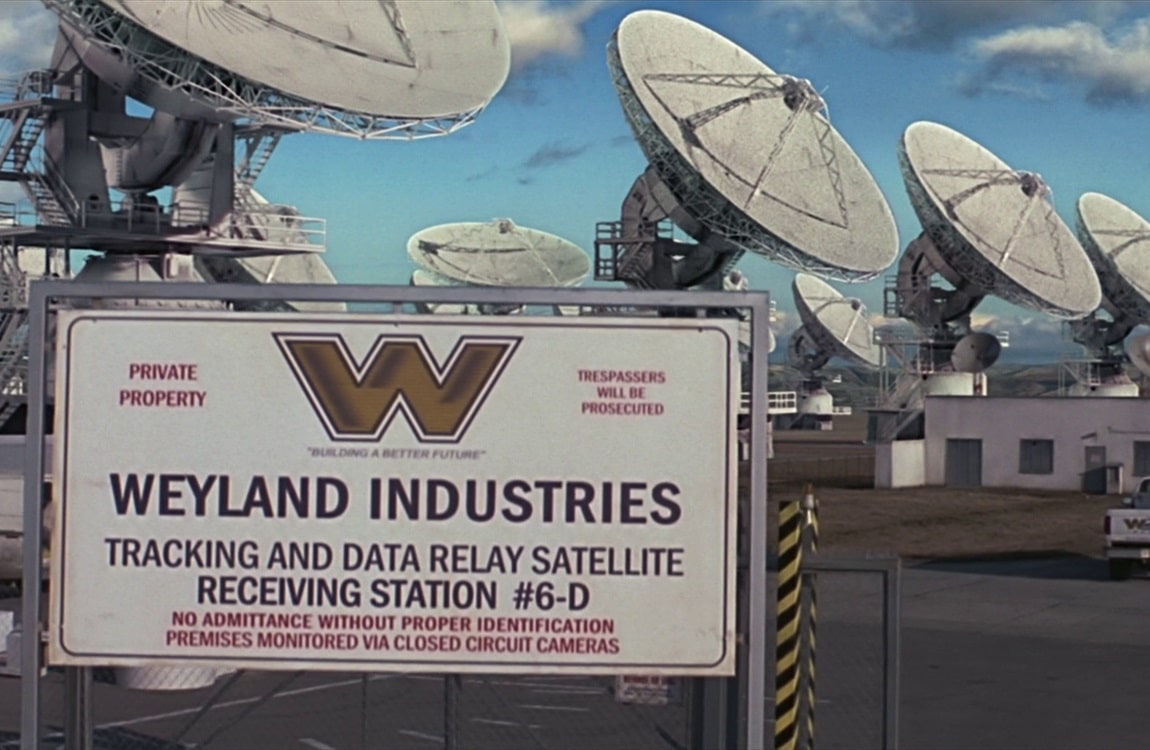
In the Alien vs. Predator movies, the origins of Weyland-Yutani are tied to the Weyland Industries, headed by Charles Bishop Weyland (played by Lance Hendriksen). The company was a British industrial business, dealing with nanotechnology, robotics, pharmaceuticals, and space exploration. The slogan for Weyland Industries was "Building a Better Future", similar to what the company would take on later. Unfortunately, Charles Bishop Weyland was killed on an expedition in Antarctica, seeking an ancient pyramid under the ice that would hold new technology, and possibly a key to longer life.

Weyland Corp
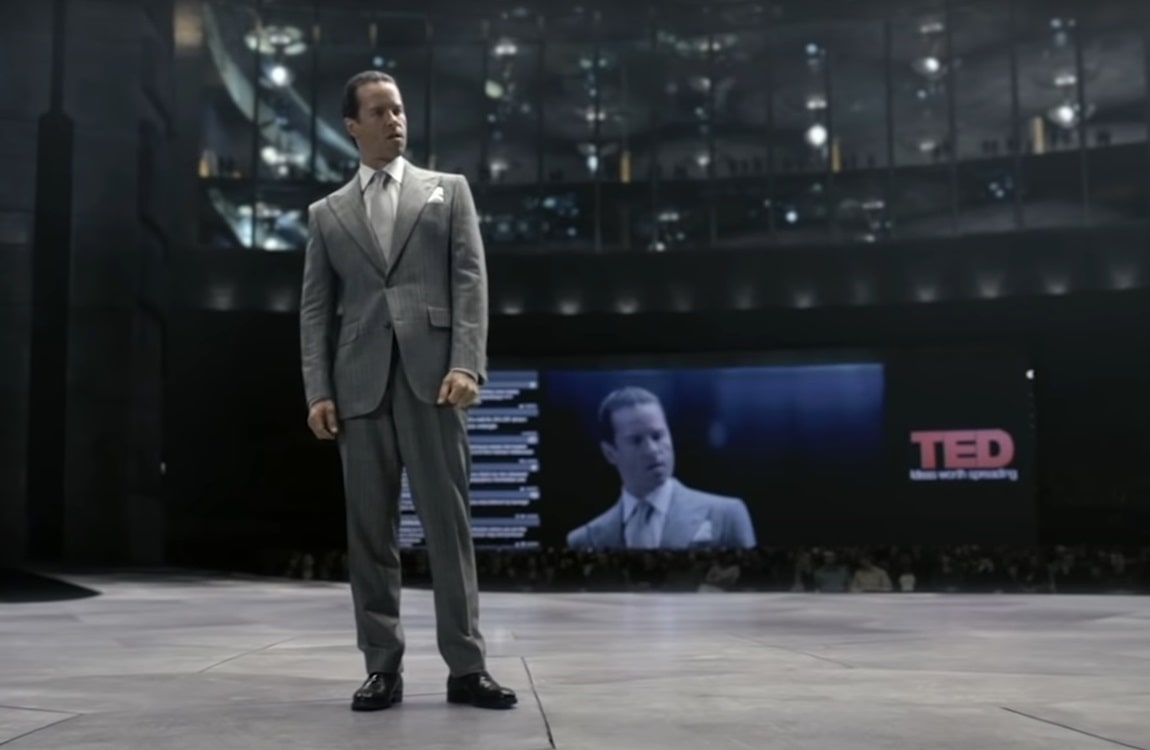
In Prometheus, Ridley Scott created a new origin for Weyland-Yutani, somewhat contradicting what Alien vs. Predator set up before. Founded by the visionary Peter Weyland (played by Guy Pearce), Weyland Corp emerged as a trailblazer in technology. From its inception on October 11, 2012, the company quickly distinguished itself through innovations in holographics, off-world colonization, faster-than-light travel, and cybernetics, among others. Notably, Weyland Industries' introduction of the David android series marked a significant milestone in artificial intelligence. Although The Project Prometheus expedition would hurt the company and bring death to Peter Weyland, the Company would continue forward. To make things fit with the AvP movies, one could say that Peter Weyland was Charles Bishop Weyland's son, and eventually, they did meet a similar fate, even at the hands of the same actor (Ian White, who played both Scar Predator and the Engineer).
Acquiring Borgia Assets
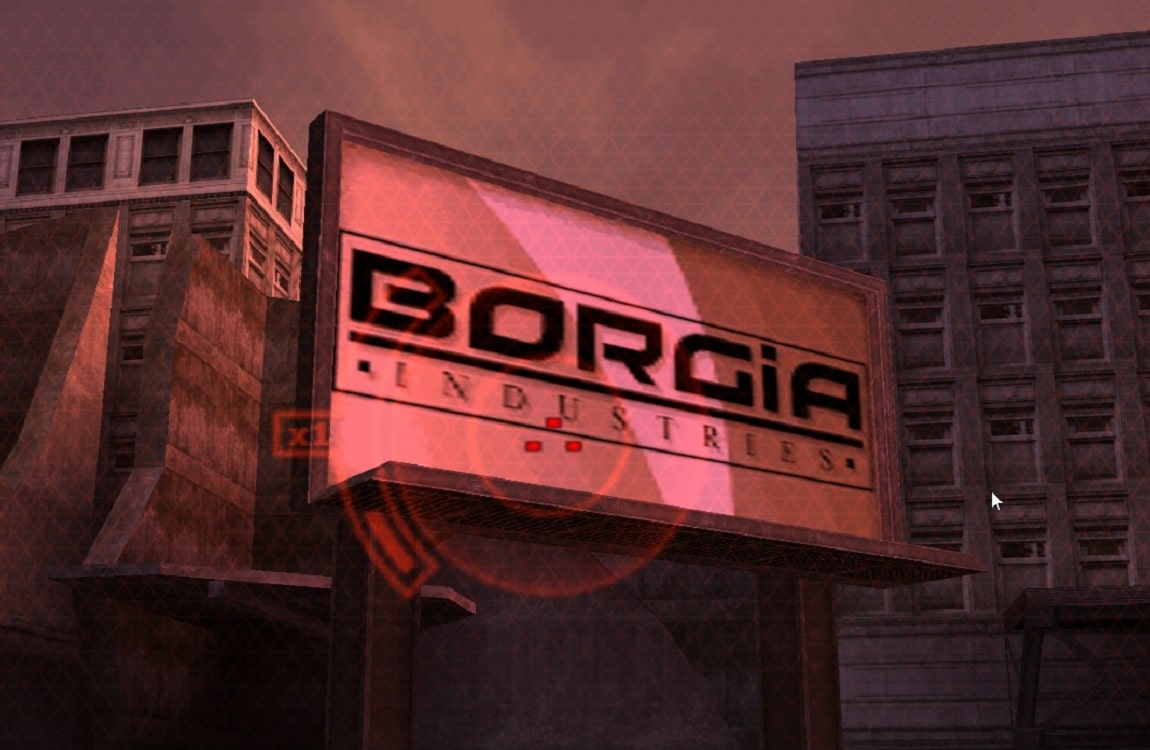
Borgia Industries was another American mega-corporation run by the ruthless Borgia family, who had ties to the mob. After the destruction of New Way City by a Yautja self-destruct device, the Borgia Industries rose to rebuild the city, which was then renamed to Neonopolis. They had encountered the Yautja and stolen some of their technology, which allowed them to make rapid advancements in their research. In the wake of the destruction that Scarface did to the company in the 2030ties, Borgia Industries was left in a bad state with most of its senior members dead. The company was bought out by a mysterious Mr. Weyland (a descendant of Charles Bishop Weyland and/or Peter Weyland), and based some of the Borgia technology to build the MOTHER computer later seen on the USCSS Nostromo.
Yutani Corporation
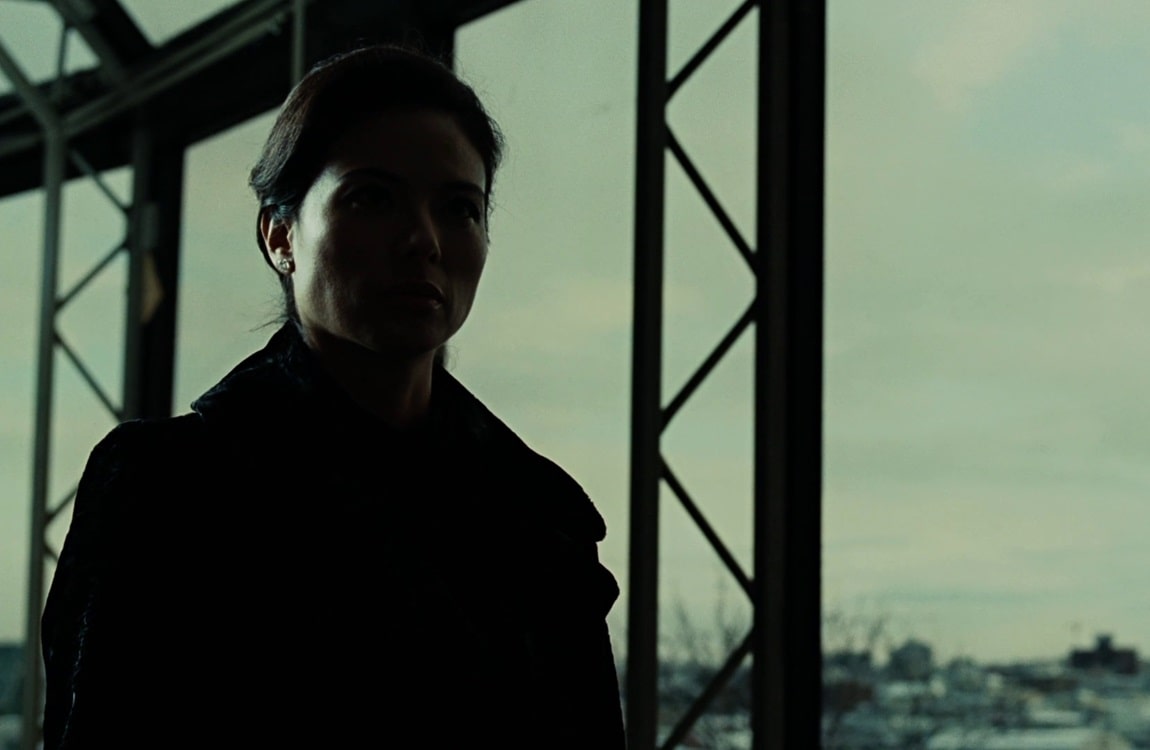
Contrasting Weyland Corp's public prominence, Yutani Corporation operated with more obscurity. Officially founded in 2074 in Japan, Yutani specialized in cybernetics and gained a competitive edge through its acquisition of the Yautja Plasma Pistol, much like Borgia Industries. The pistol ended up in the hands of a mysterious "Miss Yutani" at the end of Aliens vs. Predator: Requiem, although it would take an additional 70 years for her descendants to officially form the company. This technology leapfrogged Yutani into the forefront of the cybernetics field, setting the stage for its eventual merger with Weyland Corp.

The Weyland-Yutani Merger
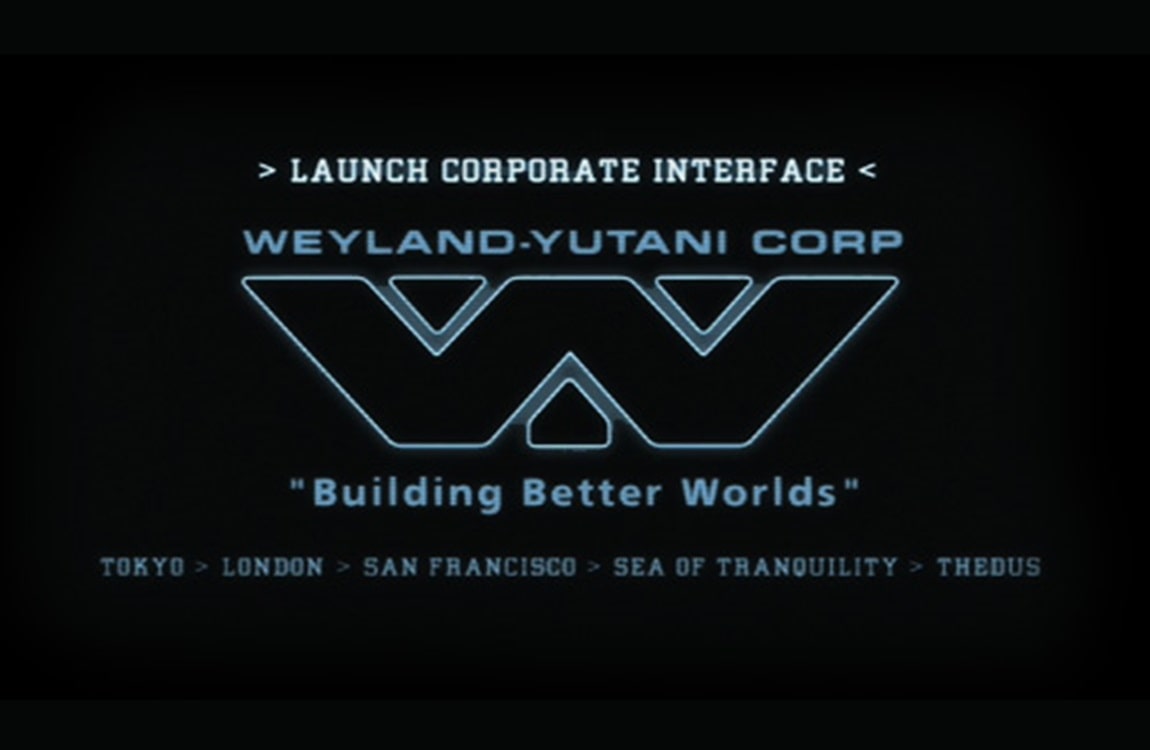
In 2099, Weyland Corp and Yutani Corporation merged, creating the Weyland-Yutani Corporation. This merger marked a significant turning point, as the company now dominated numerous sectors, ranging from technology and space travel to terraforming and colonial administration. There is conflicting information on which company was in a stronger position to take over the other, but information from the Alien: Covenant Origins book points to the Yutani Corporation under Hideo Yutan taking over Weyland Corp. Weyland Corporation was most likely in a weaker position due to the Prometheus mission ending in a fiasco. The combined resources and expertise of both companies allowed Weyland-Yutani to exert considerable influence over human space exploration and settlement.
Building Better Worlds
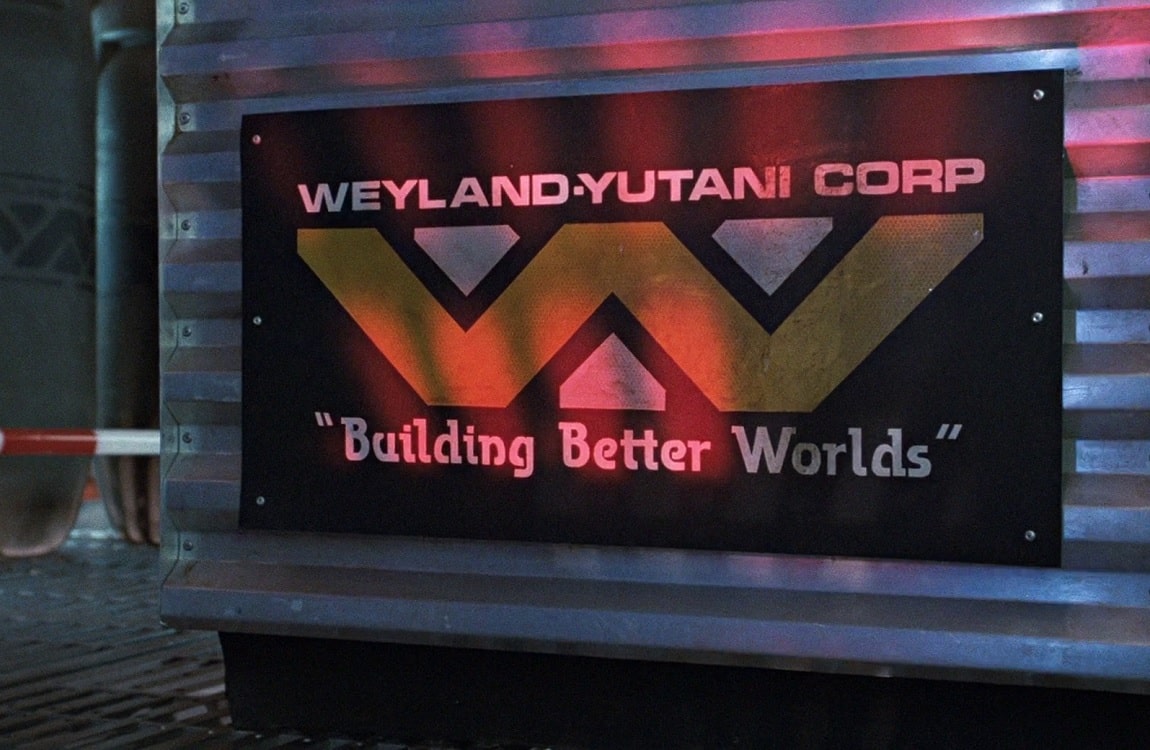
Weyland-Yutani's motto, "Building Better Worlds," reflected its involvement in terraforming and colonizing efforts. The company played a pivotal role in establishing and managing off-world colonies, notably Hadley's Hope on LV-426 and Freya's Prospect on BG-386. However, these endeavors were not without controversy, as Weyland-Yutani's pursuit of profit often overshadowed ethical considerations. These pursuits for profits were more a smaller scale at first, with lone individuals taking the initiative to make crews expandable (such as Carter Burke, who was working alone).
Acquiring Seegson Assets
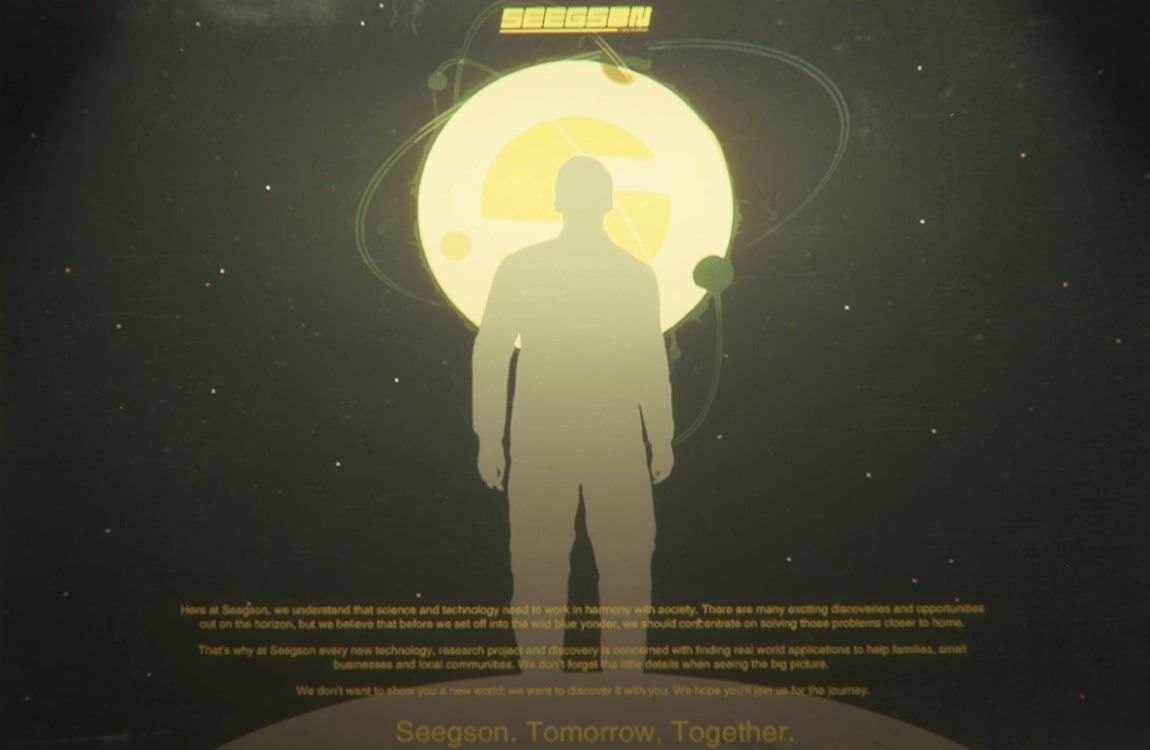
Seegson, initially known as Sieg and Son and founded by Josiah Sieg, was a European conglomerate aspiring to match the success of the larger Weyland-Yutani Corporation. Although Seegson developed various technologies and operated subsidiaries like Seegson Communications and Seegson Synthetics, their products were often seen as inferior to those of Weyland-Yutani. Notably, Seegson invested heavily in space stations, such as Sevastopol Station (seen in Alien: Isolation), but this strategy ultimately led to financial troubles. The financial strain and the failure of their space station ventures, particularly Sevastopol, forced Seegson to sell off parts of their business. This provided an opportunity for Weyland-Yutani to acquire most of Seegson's assets, further solidifying its position as a dominant force in space technology and research.
Weyland-Yutani Bio-Weapons Division
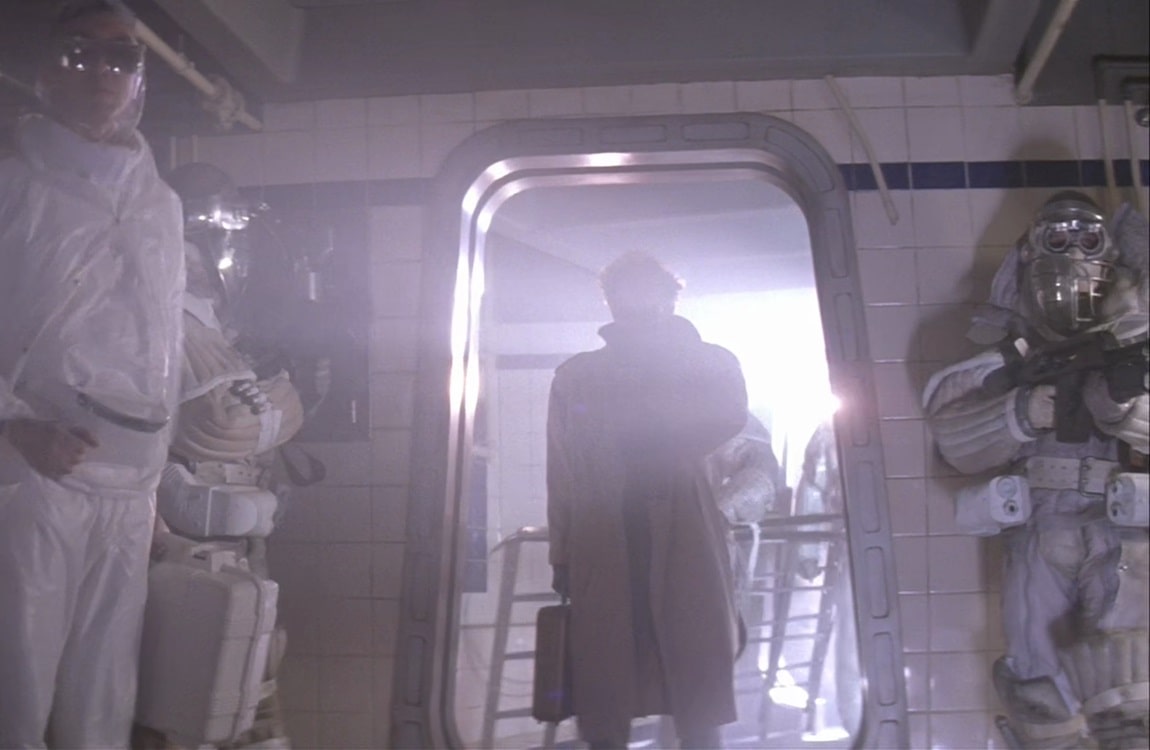
The Bio-Weapons Division of Weyland-Yutani was a secretive and controversial branch focused on developing biological and viral weapons, particularly using the Xenomorph XX121 species. Their main objective was to capture various forms of the Xenomorph, such as Facehuggers, Chestbursters, and adult creatures, for use in their weapons research. This division believed that Xenomorphs, known for their ability to self-replicate, could be pivotal in creating weapons for distant operations in space. The division's methods often involved deceit and putting human lives at risk, which led to significant opposition from Ellen Ripley, whom they confronted on Fury 161, but failed to convince. One of the Bio-Weapons Division's leaders was Michael Bishop, a mysterious figure with a remarkable likeness to Charles Bishop Weyland, fueling rumors that he was actually an android.
Downfall and Buy-Out by Wallmart

Despite its immense power and influence, Weyland-Yutani faced significant setbacks in the late 23rd century. Financial and political pressures, combined with legal challenges, led to the company's downfall. In an unexpected turn, Weyland-Yutani was eventually bought out by Walmart, marking the end of an era for the once-dominant corporation. Not much is known about Walmart's ventures that far in the future, but most likely, it focused on consumer products. United Systems Military took over some of the Weyland-Yutani research and increased their efforts on acquiring a Xenomorph XX121 species by cloning Ellen Ripley on the USS Auriga.
Resurgence
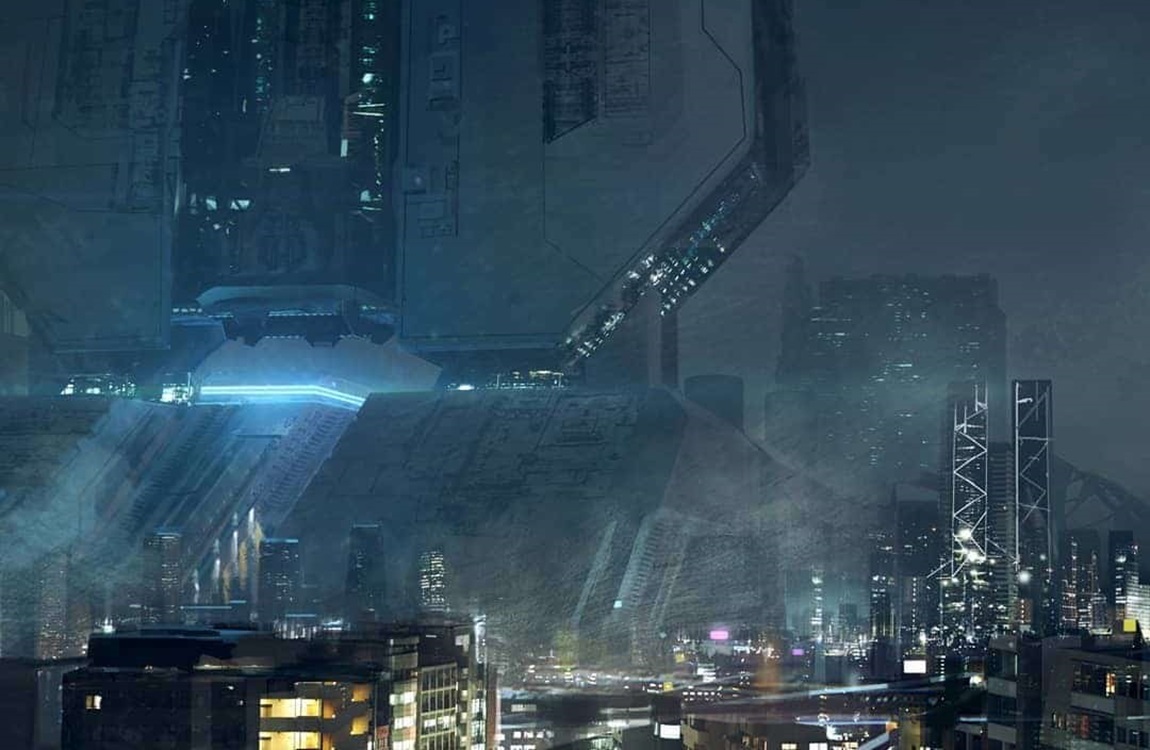
However, Weyland-Yutani's story did not end there. Following the undoing of the United Systems Military after the destructive fall of the USM Auriga on Earth, The Company made a surprising comeback. Leveraging its role in Earth's cleanup and rehabilitation, Weyland-Yutani regained public favor and re-established itself as a major corporate entity. It again formed close ties with the Colonial Marine Corps, which was still around. Together, these two entities fought against the Rage invasion in the late 27th century, one of the further events we know from the Alien timeline.
The Tyrell Corporation Connection
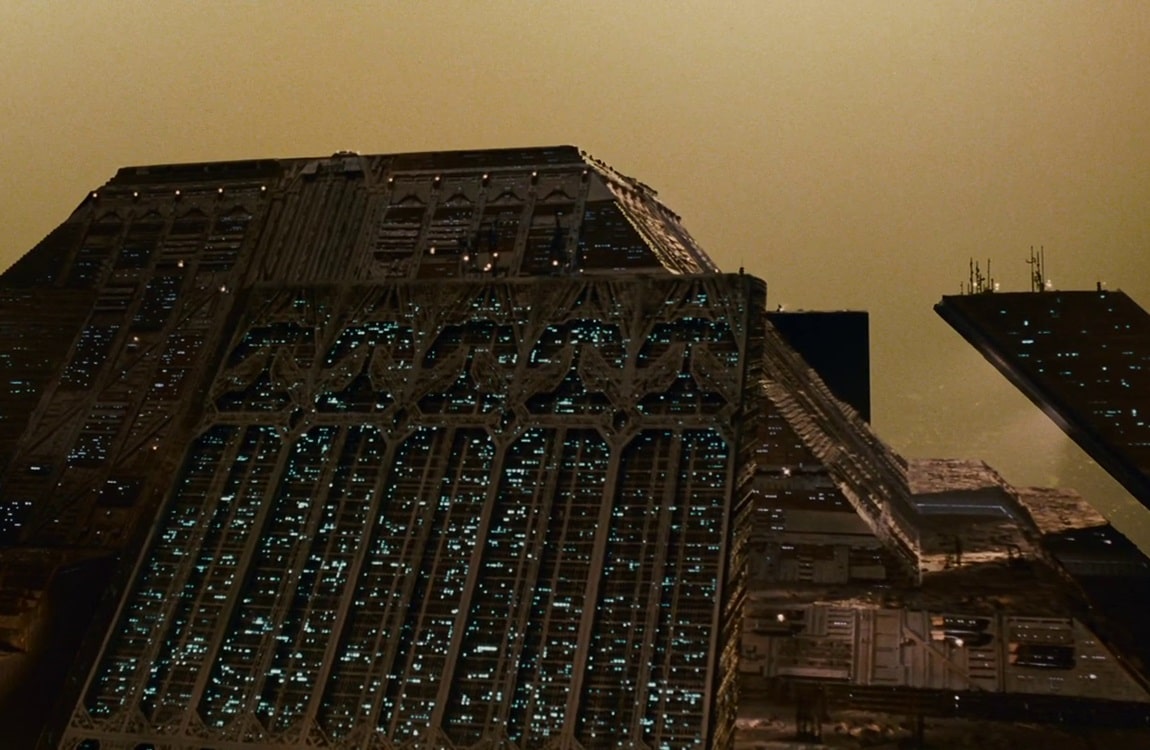
Intriguingly, supplemental materials suggest a potential connection between Weyland-Yutani and the Tyrell Corporation from "Blade Runner." In the biography of Captain Dallas seen in Aliens, it is stated that he was assigned to the USCSS Shusett which belonged to the Tyrell Corporation. The Tyrell Corporation was another somewhat nefarious organization, working on android creation and space exploration. However, in Blade Runner 2049, it was stated that the Tyrell Corporation went bankrupt in the late 2020ties, and its assets were acquired by the Wallace Corporation. Further, Dallas working for Tyrell was just an easter egg, and although the two franchises share many common themes, they should be considered to be one shared universe.
Behind The Scenes
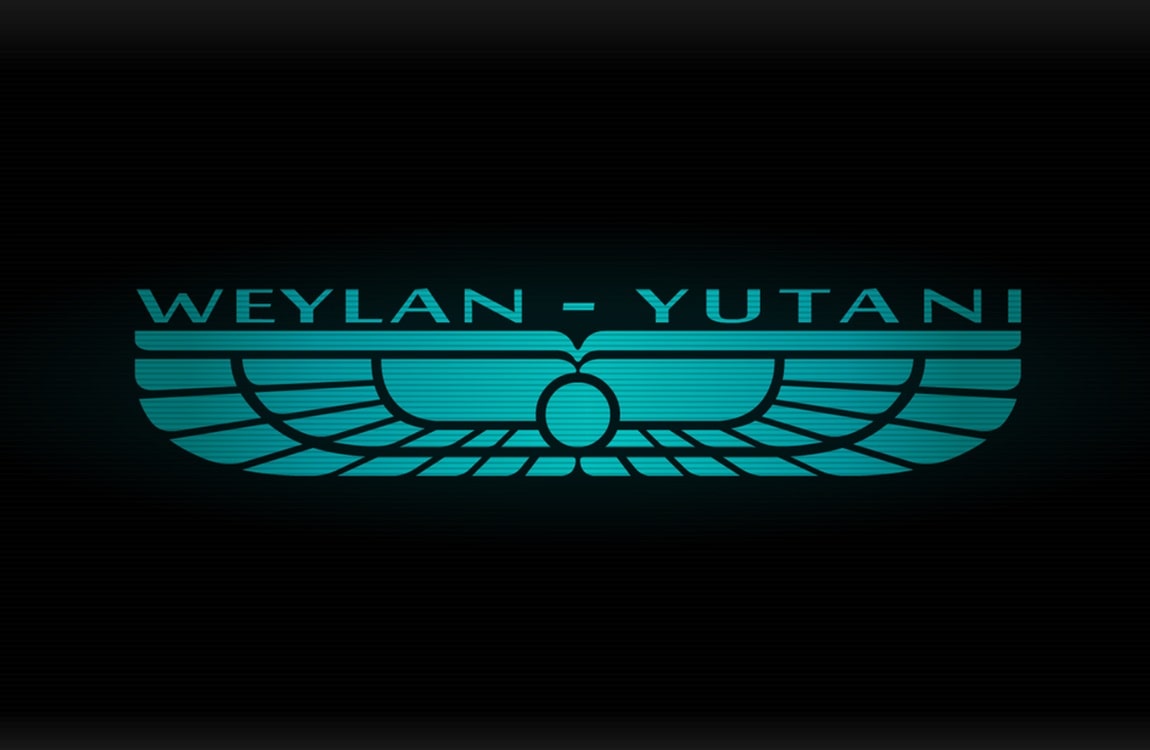
The creation of Weyland-Yutani was a collaborative effort among the "Alien" series' designers and filmmakers. Initially named "Weylan-Yutani," the company's name and logo evolved over time. "Weylan-Yutani" was visible in a few places in the first Alien movie, including some beer cans that the Nostromo crew drank from. "Weylan" was rumored to be the name of Ridley Scott's neighbor from England. In Aliens, Cameron changed the company name to "Weyland-Yutani" and displayed the name and logo much more prominently. Scott, although not a fan of Aliens, did not object to using the name "Weyland" in the Prometheus and its sequel.
Conclusion
In conclusion, the history of the Weyland-Yutani Corporation is a complex tale of ambition, technological advancement, and ethical ambiguity. During almost seven centuries, Weyland-Yutani acquired the assets of many other companies but almost went out of business itself several times. However, it still made its final comeback and is still a force to be reckoned with, even in the late 27th century. Weyland-Yutani will be most likely be featured in the upcoming Alien: Romulus, and the Hulu FX Alien TV Series.

